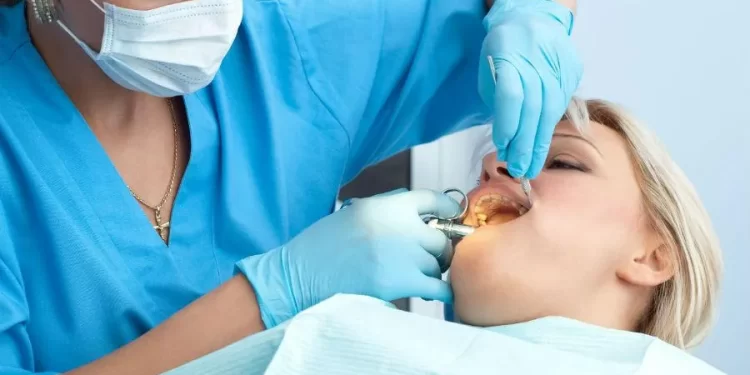Wisdom teeth extraction is a very common dental procedure that is performed to enhance oral health and prevent complications such as bite misalignment and infection. In fact, this procedure is so common that it is likely that you know at least one, if not two or three people that have had wisdom tooth extractions in Winnipeg.
If you are an adult who has not had their wisdom teeth removed, you may be wondering if you need your wisdom teeth removed, or if it is too late to have your wisdom teeth removed. In this blog post, our team at Greenwoods Pediatric Dentistry tells you all you need to know about wisdom teeth.
Why Are Wisdom Teeth Removed?
Before we can get into the best time to remove wisdom teeth, it is important to understand why we extract wisdom teeth in the first place. Wisdom teeth are the final set of molars to erupt in our mouths. They are also called third molars, and they used to be very important for our health and digestion. Years ago, we had a diet that required a lot of chewing and biting force, which is why our wisdom teeth were useful. Today, we no longer need these back molars because our diet has evolved to be more easily digestible.
Some people have wisdom teeth erupt above the gumline that do not cause any problems, some people do not have any wisdom teeth at all, and some people have wisdom teeth that require extraction. The most commons reasons for wisdom teeth to be extracted include:
- Impacted teeth- wisdom teeth that are stuck below the gumline
- Swollen or tender jaw
- Painful gums or jaws
- Infections
- Chronic bad breath
- Swollen or bleeding gums
Sometimes, wisdom teeth come in and do not cause any problems initially, but begin causing issues later in life. It is not uncommon for people to put off getting their wisdom teeth removed until they begin to experience discomfort as they get older. No matter your age, an experienced dentist near you can help. For example, if you're in Illinois, this trustworthy dentist in naperville is a good option.
What is the Best Age to Get Wisdom Teeth Removed?
Most people get their wisdom teeth removed between the ages of eighteen to twenty. Dentists tend to prefer removing wisdom teeth earlier in life, because as we age, the roots of our teeth become more fully formed and firmly embedded in the jaw, resulting in a more complicated surgery to remove them. However, this does not mean that you cannot get your wisdom teeth extracted later in life if they are causing you problems.
It is never too late to seek wisdom tooth extractions near you, if you are older, it may just mean a more complex procedure and longer recovery time. Older adults often require wisdom tooth extractions because they have developed infection or are causing issues such as bite misalignment.
What To Expect During Wisdom Tooth Surgery
Before your surgery, your dentist in Winnipeg will arrange for you to meet with your oral surgeon. During this time, you will have the chance to share your dental and medical history, any medications you are taking, and any other pertinent information with your surgeon. You can also use this time to ask any questions or voice any concerns that you may have. The surgeon will also let you know what to expect for the day of your procedure and will discuss the kind of anesthetic they will use.
On the day of your surgery, you can expect the entire procedure to take about one hour. Your surgeon will provide you with an anesthetic to ensure that you do not feel any pain or discomfort before removing your wisdom teeth. In some cases, your oral surgeon will need to cut into your gums or bones to access and remove your teeth. In these situations, they will suture your gums after the extraction, and these stitches will dissolve on their own within a couple of days.
Healing After Wisdom Tooth Extractions
Everyone responds to anesthesia differently and recovers from the procedure in their own way. If you were only given a local anesthetic to numb your mouth, you may be able to drive yourself home after surgery. However, if you were given general anesthesia, you will feel out of it for several hours following your procedure, and you will need a loved one to drive you home and keep an eye on you until the effects of the anesthetic wear off.
Most people experience some minor swelling and discomfort following their procedure. It is important to follow your surgeon’s instructions for healing to ensure that you do not experience any complications. You can use a cold compress against your cheeks to bring down swelling, and take prescribed or over-the-counter pain medications to alleviate your discomfort. In most cases, your swelling and pain will subside within 2 to 5 days of the procedure. Make sure that you eat soft foods while recovering, and avoid the use of a straw, as this can lead to complications such as dry socket. If you notice worsening pain, discharge from the extraction sites, or persistent bleeding, contact your dentist for a checkup.
Speak to a Dentist About Your Wisdom Teeth Today
The sooner you speak to a dental professional about your wisdom teeth, the better off your oral health will be. While you are never too old to get your wisdom teeth removed, the sooner you do, the simpler your procedure and recovery will be. Many individuals put off getting their wisdom teeth extracted because they are nervous or anxious about the pain or discomfort that may come with having them removed. In truth, wisdom tooth extraction is a common procedure that comes with little pain or discomfort.
If you would like to move forward with your wisdom tooth extractions, please do not hesitate to contact our dedicated team of dental professionals at Greenwoods Pediatric Dentistry. We are happy to work with you to promote optimal oral health for years to come.


























